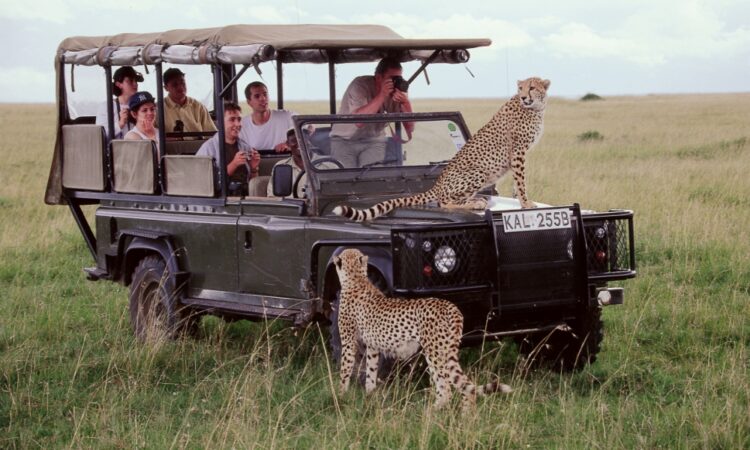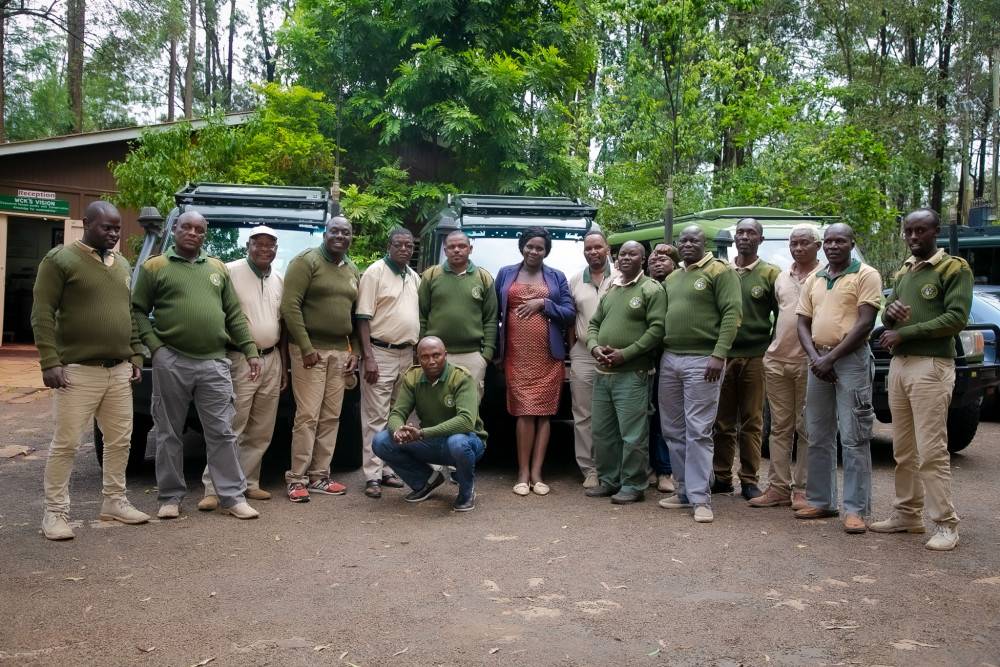While you're in Mombasa (Kenya), it's essential to be aware of the health hazards. Here are the most important health considerations:
1. Vaccinations
Routine Vaccinations: Ensure that you are up-to-date on routine vaccines such as measles-mumps-rubella (MMR), diphtheria-tetanus-pertussis, varicella (chickenpox), polio, and your yearly flu shot.
Hepatitis A is recommended for everyone who travels due to the risk that food and water may be contamination.
Hepatitis B : Travelers who are exposed to blood or bodily fluids through sexual contact, medical treatments or the use of drugs must be advised.
Typhoid : This illness is crucial to those who will be staying with relatives or close friends, traveling in smaller towns or rural regions, as well as for foodies who like to experiment.
Yellow Fever A certificate of vaccination may be required for those who are traveling from countries at possibility of transmission of yellow fever. Check the most recent guidelines.
Consider rabies for travelers participating in outdoor activities, like hiking, camping, or caving.
2. Malaria Prevention
The malaria in Mombasa is very prevalent. Talk to your physician about the most effective antimalarial medicine for you.
Use DEET-based insect repellent with long sleeves, long pants, and an insect net to prevent mosquito bites, especially during the night.
3. Food and Water Safety
Avoid drinking tap water and Ice cubes. Do not drink tap or ice water.
Consume well-cooked food only. Avoid eating raw, unwashed fruits and vegetables as well as seafood. Be cautious with street food, and go with restaurants that are reputable.
4. Diarrhoea Traveler
Hand soaps and hand sanitizers are excellent alternatives for hand washing. Avoid consuming any beverage or food from a questionable source.
You should carry medications Take medications with you, like Imodium (loperamide) as well as oral salts for rehydration. If the case is severe Consult your physician about antibiotics.
5. Sun Protection
Sunscreen: Select a broad spectrum sunscreen with SPF 30 or greater. Apply sunscreen frequently and particularly after sweating or swimming.
Protective Clothing: Wear hats, sunglasses, as well as light, long-sleeved clothing to limit the sun's rays.
6. Heat and Hydration
Keep hydrated. Drink plenty, and preferably water, to avoid dehydration. Dehydration can result from excessive caffeine and alcohol.
Do not overexert yourself: Take breaks, especially during the hottest parts of the day. Beware of heat stroke and heat exhaustion by seeking shade or cool places.
7. Security in Water Activities
Swimming in Areas Delineated: Take note of the local guidelines and conditions for swimming, and also any potential dangers such a strong current.
Sea Life Awareness: Be aware and stay clear of dangerous marine life like jellyfish and sea urchins. Wear water shoes if walking in shallow water.
8. Medical Care and Insurance
Travel Insurance: Ensure you have comprehensive travel coverage that covers medical and evacuation emergencies.
Local Medical Facilities: Familiarize yourself with the address and the reputation of reputable local medical establishments. Hotels with major chains usually include information on nearby hospitals and physicians.
Meds: Carry a large amount of the prescription medication you use, as well as the prescriptions you have.
9. Emergency Contacts
The Embassy: Contact the embassy of your country of residence in Kenya.
Local Emergency Numbers. Be aware of the local emergency phone numbers for the police (999) firefighters (999) and ambulances (999).
By following these tips for health You can reduce the risk and focus on enjoying your holiday in Mombasa. View the most popular airport transfers kenya for more advice including tours and safaris, trip tour companies, trips to kenya africa, tours and safaris, kenya mombasa holiday packages, beach in mombasa, tours and safaris in kenya, trips to kenya africa, kenya safari holiday, african safari excursions and more.

What Are The Weather Conditions I Should Be Aware Of When I Visit Mombasa In Kenya?
It is crucial to be aware of the weather patterns of Mombasa prior to packing your bags and enjoy your vacation. Here are the key conditions to be aware of:
1. Climate Overview
Mombasa's tropical climate is hot and humid throughout the year. The temperatures typically range from 24degC to 32degC.
2. Seasons
Hot and Humid Season (November through April) The period is characterized by high temperatures and humidity. The peak tourist season occurs between January and December.
Long rains: (April-June) The rainy season is marked by heavy rainfalls and thunderstorms. It is often difficult to drive on roads with mud. This is the time when there is no tourism.
The cooler season (June through October) The coolest season is the most comfortable time to travel, due to lower temperatures and humidity levels. The weather is generally pleasant, which makes it a great time for outdoor pursuits.
Short Rains (October - November): These are short rainshowers that are not as intense. The rains will usually be brief-lived, and then followed by a bit of sunshine.
3. Packing Tips
Lightweight clothes: To stay cool and dry in the humid climate take lightweight, breathable clothes such as cotton or linen.
Rain Gear: If you travel during the rainy season you must have an umbrella as well as a waterproof jacket as well as some shoes that are waterproof.
Sun Protection: A sunscreen that is high in SPF, wide-brimmed caps, sunglasses, light clothing, and covering the skin with light clothes will shield you from strong sunlight.
Swimwear: Bring your swimwear to the beach or the hotel pool.
4. Weather-Specific Activities
Beach Time - The most ideal time to go to the beach in cooler weather (June through October) is during a time when the ocean is calm and the weather is nice.
A calm and clear ocean is ideal for snorkeling, diving, and other watersports from November to March.
Wildlife Viewing. The cooler seasons (June-October) are also ideal for wildlife excursions or safaris because the temperatures are less uncomfortable.
5. Health-related Considerations
Hydration is crucial in this hot and humid weather. Take plenty of fluids especially when you're outside.
Health-related illnesses that are related to heat: Be aware of the risk of heat exhaustion or heat stroke. Wear loose clothing and frequent breaks in shade. Avoid strenuous activities during the peak heat.
6. Adjustments to Travel
Travelling during the rainy season Be ready for travel disruptions in the event that you visit during this time. It is possible that roads are not accessible and outdoor activities may be restricted.
Rainstorms that cause delays to flights may cause delays on flights. Make a plan for your trip and be aware of any delays.
7. Environmental Considerations
Natural Hazards. Be aware of the possibility of flooding during heavy rains. Always be aware of weather conditions. Be sure to follow any local safety instructions.
Be aware of tides. They can be unpredictable and can significantly impact beach activities. Consult local tide schedules for a safe and secure beachcombing and swimming experience.
Knowing these weather conditions can help you plan your trip and prepare accordingly, so that you can enjoy your trip in Mombasa in peace. Take a look at the recommended kenya safaris Afrika for blog info including kenya safari beach, travel & tours company, kenya travel packages, tours and travel company in kenya, mombasa safari packages, kenya safaris and tours, kenya safari holiday packages, kenya safari packages, african safari tours, tour and travels and more.

What Are The Environmental Responsibilities I Should Be Aware Of During My Holiday In Mombasa Kenya?
It is essential to take care of the environment when on vacation in Mombasa. This will help preserve the beauty and diversity of the region. Think about these environmental obligations:
1. Sustainable Accommodation
Eco-friendly Hotels: Select hotels that practice sustainability. Find eco-labels or certifications like Eco-Tourism Kenya.
Join hotel initiatives that help conserve water and energy. Reuse towels and linens. Shut off lighting and air conditioning when they are not in use.
2. Responsible Wildlife Viewing
Respect Wildlife. Keep your distance to wildlife to ensure that you do not disturb them. Follow the directions given by your guide.
Do not feed animals. This could make them change their usual diet and behaviour.
Do not litter in wildlife reserves. Take all your trash with you and dispose of it in a proper manner.
3. Plastic Reduction
Do not use plastics with a single-use purpose. Carry a reusable water bottle, shopping bag, and tools.
Support local initiatives in your area. Participate or help local beach cleanup efforts, and other organizations that work to lessen the pollution caused by plastic.
4. Water Conservation
Mombasa suffers from water scarcity. Turn off the taps and take shorter showers.
Eco-friendly Products - Choose environmentally friendly and biodegradable toiletries in order to lessen water pollution.
5. Energy Conservation
Reduce the consumption of energy by limiting usage of air cooling. Unplug any devices that aren't in use.
Encourage Renewable Energy Search for hotels and tour operators that use renewable energy sources.
6. Sustainable Transportation
Reduce your carbon footprint by taking public transport options, such as buses or matatus, whenever it is possible.
Think about eco-friendly alternatives like renting a bicycle or jogging short distances. Some areas offer ecofriendly tuktuks.
7. In support of local economy
Locally-owned businesses: To help the local community, purchase souvenirs, products, and food from local stalls.
Fair Trade - Select fair trade items to be sure that local producers get a fair price.
8. Environmental Education
Learn and share. Be aware of local conservation efforts, as well as the environmental issues. Do share your knowledge with others to create awareness.
Respect local cultures: Know and accept the customs and practices of your community in relation to environmental conservation.
9. Marine Conservation
If you're diving or snorkeling ensure that you avoid touching the coral reefs. Protect marine life by using sunscreen that is safe for reefs.
Beware of throwing rubbish into the ocean. Take part in marine conservation programs or support them.
10. Ethical Souvenirs
Beware of Wildlife Products: Do not buy products that are made from endangered species, such as ivory or tortoiseshell.
Sustainable Materials Buy souvenirs made of sustainable or recycled material.
11. Take part in Conservation Activities
Volunteer: You are able to volunteer to support local conservation efforts or tourism-based initiatives.
Donate or support local conservation groups and NGOs working to protect the environment.
12. Responsible Travel Policies
Travel in small groups to minimize environmental impact.
Eco-Tours: Pick tour companies who adhere to eco-friendly practices and are committed to sustainable development.
Keep in mind that these responsibilities can help you to preserve Mombasa’s precious natural resources, and maintain the beauty and diversity of the region for the future generation. See the best Diani Beach taxi for more recommendations including africa safaris and tours, tours and safaris in kenya, kenya safari holiday, kenya tour operator, mombasa safaris kenya, holiday packages mombasa, africa tours, kenya travel packages, tour agents in kenya, kenya travel packages and more.
